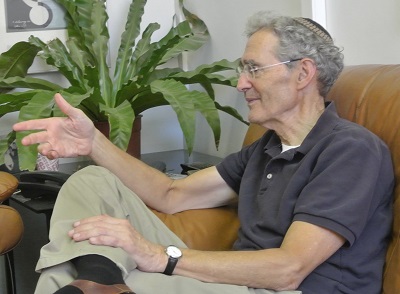 Chaim (Howard) Cedar is one of the pioneers in the understanding the significance of epigenetics in the regulation of gene expression, and for deciphering the role of DNA methylation in cancer.
Chaim (Howard) Cedar is one of the pioneers in the understanding the significance of epigenetics in the regulation of gene expression, and for deciphering the role of DNA methylation in cancer.
He was born in New York in 1943. In 1970 he completed his MD/PhD at the University of New York, followed by a post-doctoral fellowship at NYU, and then a research fellowship at the American National Institutes of Health (NIH). In 1981 he was appointed professor in the Department of Cellular Chemistry and Human Genetics at the Hebrew University of Jerusalem.
Two separate interviews were conducted.
Interview Themes
First Interview
From DNA to DNA methylation
DNA methylation and development (1)
DNA methylation and environment
The rise of 'epigenetics'
Second Interview
DNA methylation and cancer
DNA methylation and trans-generational inheritance
DNA methylation and development (2)
Epigenetics and chromatin
Immunology
Interview Excerpt (First Interview)
UD: In an article on the home page of the Institute for Medical Research Israel-Canada, Tim Spector from King's College relates your research to early 19th-century Lamarckism. I completely disagree with what he writes about Lamarck, Darwin and Kammerer because Lamarck didn't invent soft inheritance, Darwin was a Lamarckian, and Kammerer's experiment could never be repeated. So after everything you have said now, it seems to me that your research does not support soft inheritance.
HC: I'm going to tell you, in my terms, what I think. You're right – this has been – in fact, this is what people call epigenetics. So the concept is that – true, Darwin was correct that the environment doesn't change the DNA sequence. But the proponents of epigenetics say, "That's true, but the environment can change methylation, which affects expression." That's the general concept. So, first of all, we don't know if the environment affects DNA methylation or how it affects it. In general, we just don't know. But there are lots of problems with this idea. The biggest problem is the one of inheritance. The fact that methylation patterns are erased in the early embryo makes it very difficult to explain how an environmental effect could then be inherited to later generations.